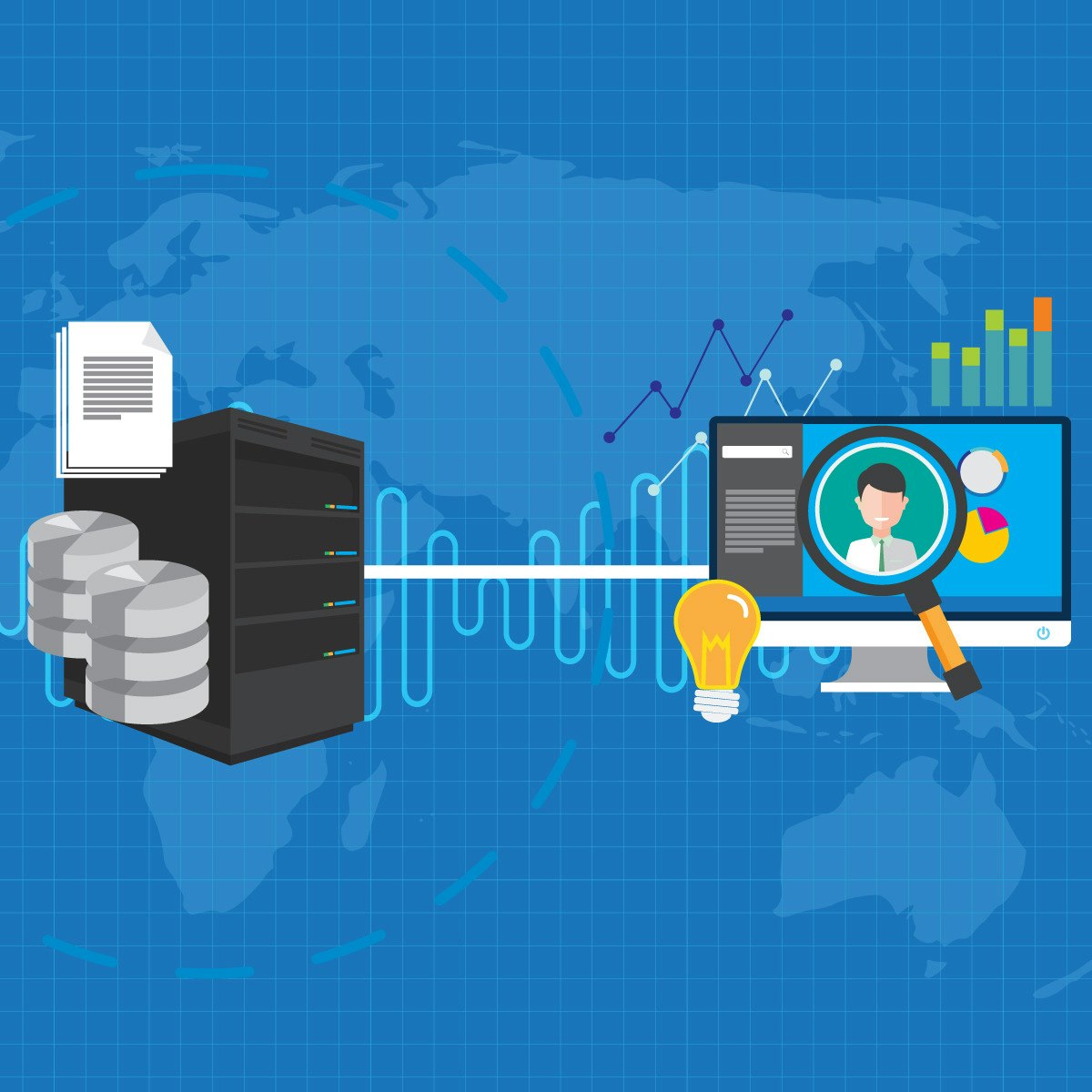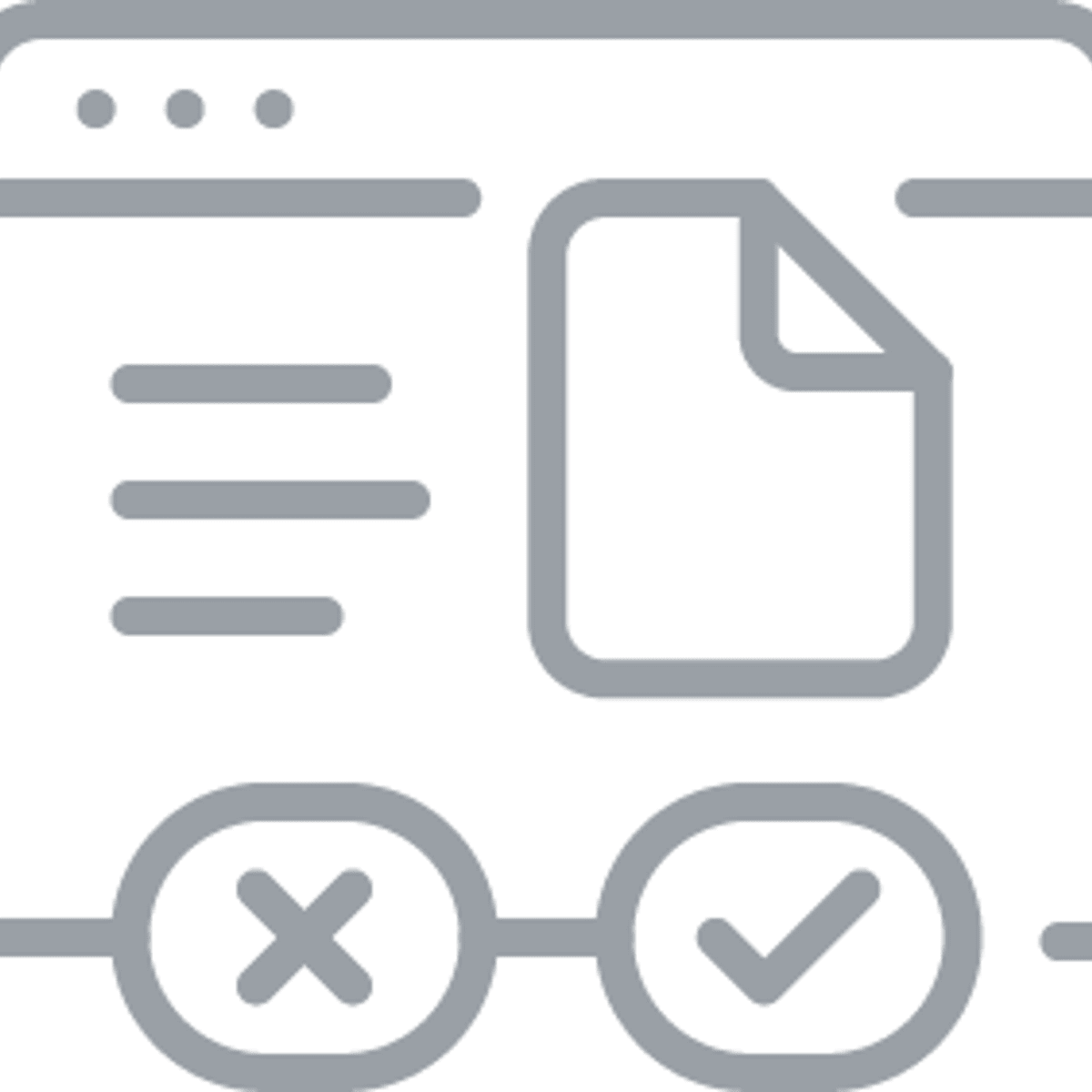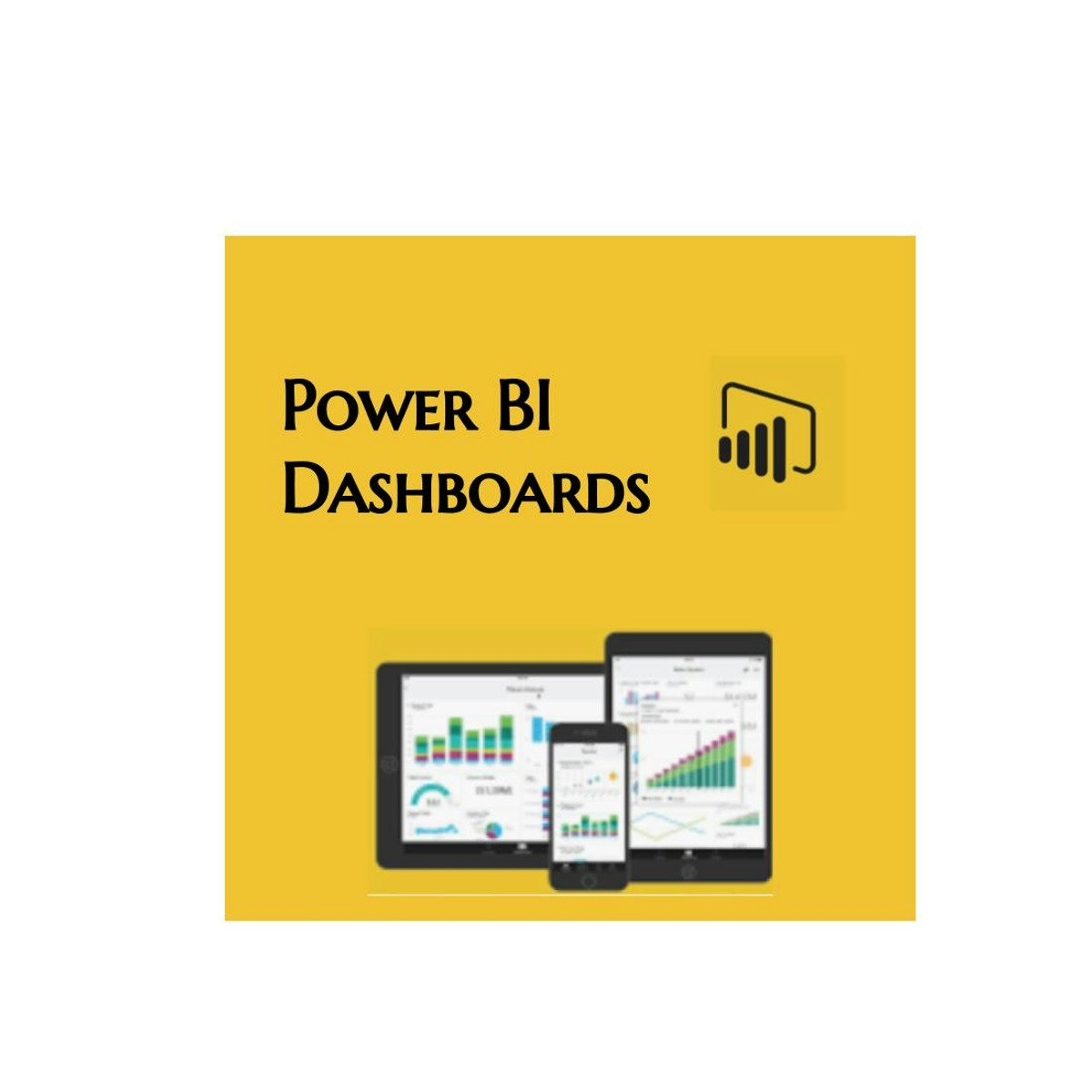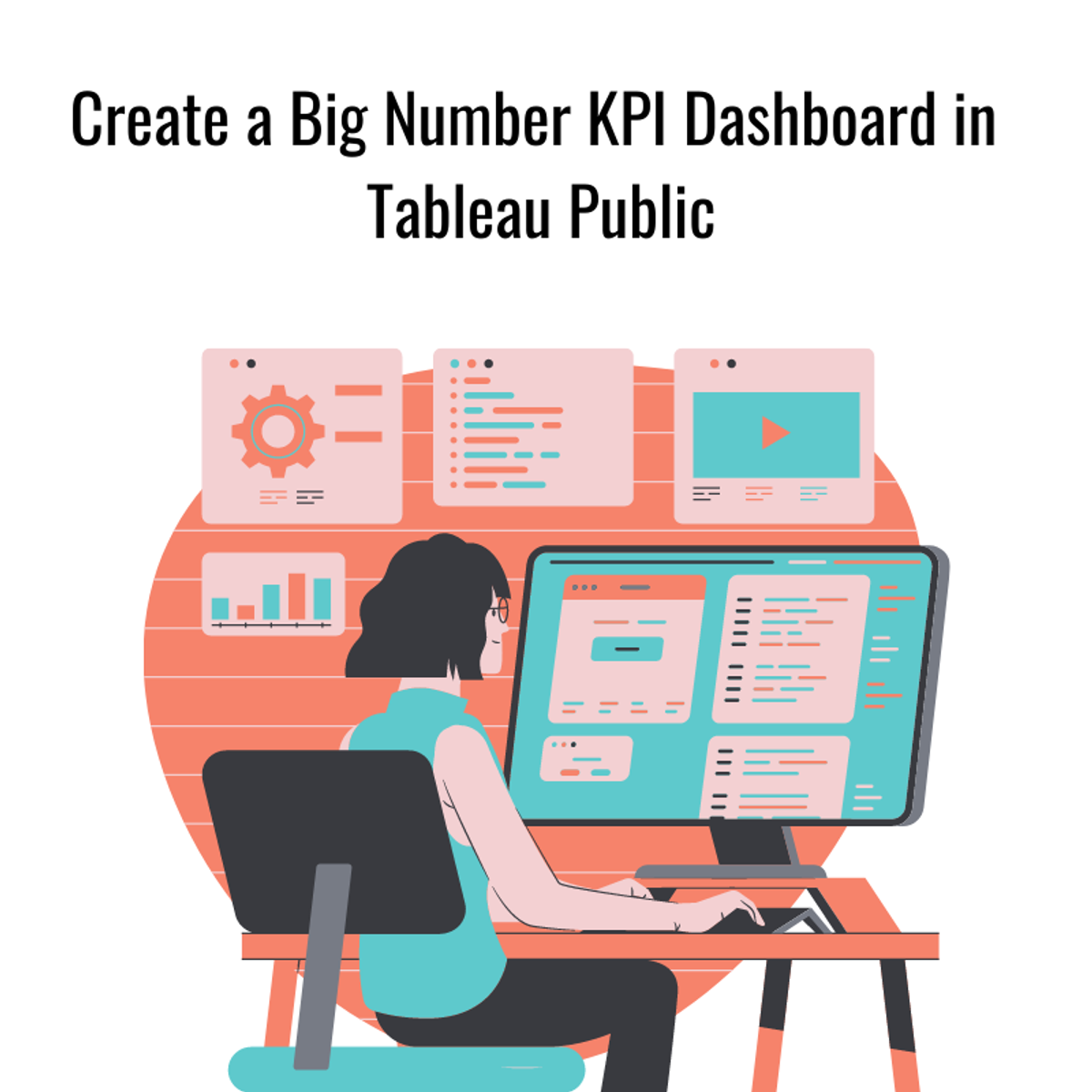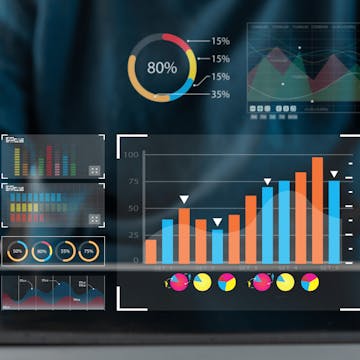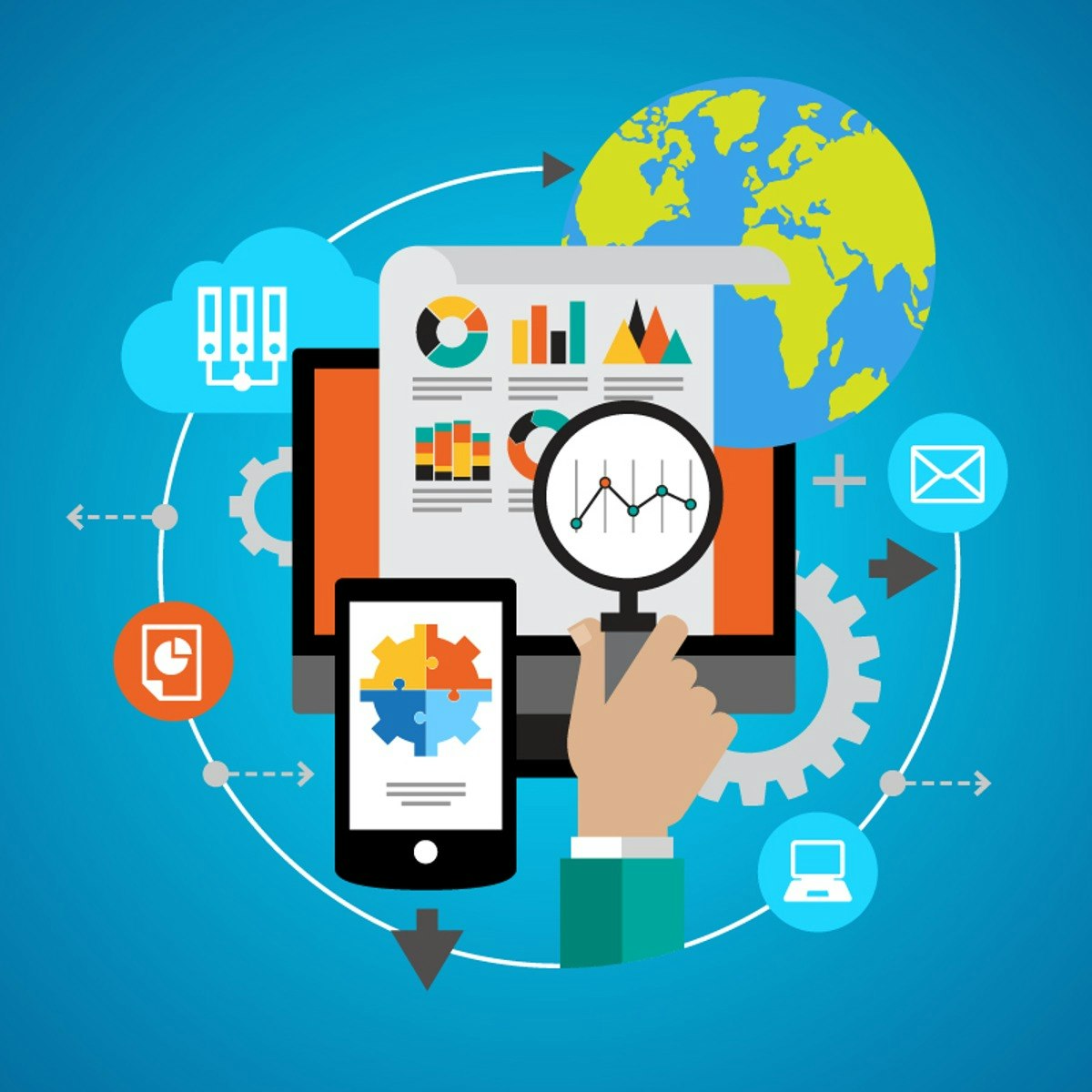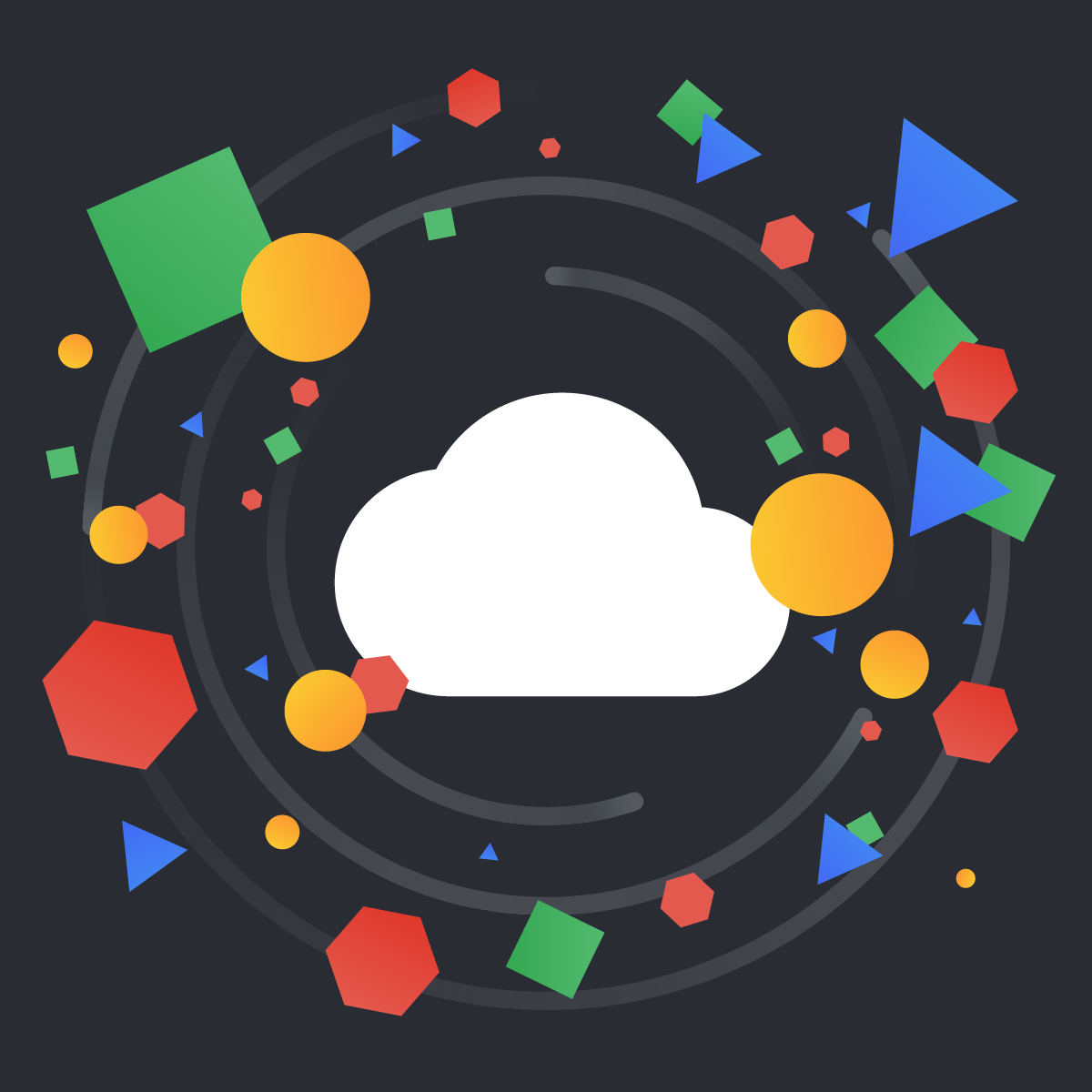Business Intelligence
Business Intelligence: A Comprehensive Guide to Transforming Data into Action
Business Intelligence, often abbreviated as BI, is a technology-driven process for analyzing data and presenting actionable information to help executives, managers, and other corporate end-users make informed business decisions. It encompasses a variety of tools, applications, and methodologies that enable organizations to collect data from internal systems and external sources, prepare it for analysis, run queries against it, and create reports, dashboards, and data visualizations to make the analytical results available to decision-makers. The overarching goal of BI is to drive better business outcomes, such as increased revenue, improved operational efficiency, and a stronger competitive advantage.
Working in Business Intelligence can be an engaging and exciting path. It allows individuals to become detectives of data, uncovering hidden trends and patterns that can significantly impact a company's strategy and success. The field is also dynamic, constantly evolving with new technologies like artificial intelligence and machine learning, which are making BI tools more powerful and accessible. Furthermore, BI professionals often find themselves at the intersection of technology and business, translating complex data findings into understandable insights for various stakeholders, making their role crucial for organizational growth and innovation.
The global Business Intelligence market is substantial and continues to grow. For instance, one market analysis valued the global BI market at USD 31.98 billion in 2024 and projects it to reach USD 63.20 billion by 2032, with a compound annual growth rate (CAGR) of 8.9%. Another report estimated the market at USD 31.34 billion in 2024, expecting it to grow to USD 63.17 billion by 2034, at a CAGR of 7.26%. A separate analysis focusing on BI software valued the market at USD 36.60 billion in 2023, projecting a CAGR of 13.7% from 2024 to 2030. This growth is fueled by the increasing volume of data generated by businesses and the recognized need to leverage this data for better decision-making and competitive advantage.
Introduction to Business Intelligence
This section lays the groundwork for understanding Business Intelligence, exploring its definition, historical roots, core objectives, and its relationship with the broader field of data analytics. It's designed to provide a solid foundation for anyone curious about what BI entails and why it has become indispensable in the modern business landscape.
Defining Business Intelligence
Business Intelligence (BI) refers to the strategies, technologies, applications, and practices used for the collection, integration, analysis, and presentation of business information. Its primary purpose is to support better business decision-making. Essentially, BI systems help organizations understand their capabilities, identify new opportunities, and implement effective strategies based on insights derived from data. This can involve analyzing customer behavior, market trends, operational efficiency, and financial performance.
The scope of BI is broad, touching nearly every aspect of a business. It can range from simple reporting and ad-hoc queries to more complex analytical processing. BI systems typically draw data from various sources, both internal (like sales records, customer databases, and financial systems) and external (such as market research data or social media trends). This data is then transformed into a usable format, often stored in a data warehouse or data mart, and made accessible to users through BI tools.
The ultimate aim is to provide the right information to the right people at the right time, enabling them to make decisions that are based on facts rather than solely on intuition or anecdotal evidence. As businesses generate ever-increasing volumes of data, the ability to effectively use BI becomes a critical factor for success and maintaining a competitive edge.
The Journey of BI: A Historical Look
The concept of using information to gain a competitive advantage is not new. The term "business intelligence" was reportedly first used in 1865 by Richard Millar Devens in his "Cyclopædia of Commercial and Business Anecdotes," where he described how a banker profited by gathering and acting on information before his competitors. However, the BI we recognize today began to take shape with the advent of computers.
In the 1950s, the Digital Revolution started, and in 1958, Hans Peter Luhn, an IBM researcher, wrote an article titled "A Business Intelligence System," describing an automatic system to disseminate information to various sections of any industrial, scientific, or government organization. The 1960s and 1970s saw the development of early Decision Support Systems (DSS), which allowed managers to use data and models to help make decisions. The invention of the hard disk by IBM in 1956 was a crucial milestone, enabling digital storage of data.
The 1970s and 1980s brought the first BI vendors like SAP and the emergence of relational databases. The development of data warehousing and ETL (Extract, Transform, Load) processes in the 1990s was a significant breakthrough, providing centralized repositories for historical data organized for analysis. The 2000s saw the democratization of BI with user-friendly tools like Tableau, QlikView, and Microsoft Power BI, making BI accessible to non-technical users. The 2010s were marked by the explosion of Big Data and the need for real-time BI capabilities, with tools like Apache Hadoop and Spark becoming prominent. Today, BI continues to evolve with the integration of Artificial Intelligence (AI) and Machine Learning (ML), making systems smarter and more predictive.
Why BI Matters: Objectives and Business Value
The fundamental objective of Business Intelligence is to empower organizations to make smarter, more informed decisions that drive business growth, improve efficiency, and create competitive advantages. BI achieves this by transforming raw data into meaningful and actionable insights. This involves not just collecting and reporting data, but also understanding trends, patterns, and the underlying reasons behind business performance.
Key objectives of BI initiatives often include improving the speed and quality of decision-making. By providing timely and relevant information, BI helps managers and executives respond more quickly to market changes, customer demands, and internal challenges. Another major objective is to optimize internal business processes. For example, BI can help identify bottlenecks in a supply chain, inefficiencies in manufacturing, or areas where customer service can be improved.
The business value derived from BI is multifaceted. It can lead to increased revenue through better sales and marketing strategies, identification of new market opportunities, and improved customer relationship management. Cost reduction is another significant benefit, achieved by streamlining operations, reducing waste, and improving resource allocation. Furthermore, BI can enhance an organization's understanding of its customers, leading to more personalized products and services and ultimately, greater customer satisfaction and loyalty. In essence, BI helps businesses leverage their data as a strategic asset.
BI, Data Analytics, and Decision-Making
Business Intelligence (BI) and Data Analytics are often used interchangeably, but they have distinct, though related, meanings. Data Analytics is a broader term that refers to the science of examining raw data with the purpose of drawing conclusions about that information. BI, on the other hand, is more focused on using past and current data to inform business decisions and monitor performance. It prioritizes descriptive analytics (what happened and what is happening) and diagnostic analytics (why it happened).
Business Analytics (BA), a subset of Data Analytics, often emphasizes predictive analytics (what is likely to happen) and prescriptive analytics (what should be done about it). While BI primarily looks at historical and current data to provide insights for operational efficiency and strategic alignment, BA tends to use data mining, statistical modeling, and machine learning to forecast future outcomes and recommend actions.
Ultimately, both BI and Data Analytics serve the common goal of improving decision-making. BI provides the "what" and "why" based on historical data, offering a comprehensive view of the business's performance. Data Analytics, particularly BA, complements this by predicting future trends and suggesting optimal courses of action. In many organizations, these functions work in tandem: BI systems might generate reports highlighting a sales decline (descriptive), analysts might then investigate why it happened (diagnostic), use predictive models to forecast future sales (predictive), and finally suggest strategies to reverse the trend (prescriptive).
Understanding these distinctions helps organizations build comprehensive data strategies. OpenCourser offers resources to explore both Business and Data Science, allowing learners to delve deeper into these interconnected fields.
Core Concepts and Components of Business Intelligence
To truly grasp Business Intelligence, it's important to understand its fundamental building blocks. This section delves into the technical and conceptual pillars that support BI initiatives, from how data is stored and prepared, to the different ways it's analyzed and presented, and the metrics used to measure success. These components work together to transform raw data into the actionable insights that businesses rely on.
The Foundation: Data Warehousing and ETL
At the heart of most Business Intelligence systems lies the data warehouse. A data warehouse is a large, centralized repository of integrated data from one or more disparate sources. Its primary purpose is to store historical and current data in a structured way that facilitates querying, reporting, and analysis, rather than supporting day-to-day transactional processing. This allows businesses to have a single source of truth for their analytical needs.
Getting data into the warehouse and making it usable involves a critical process known as ETL, which stands for Extract, Transform, Load. The Extract phase involves collecting raw data from various source systems. These can include transactional databases (like sales or inventory systems), customer relationship management (CRM) systems, enterprise resource planning (ERP) systems, flat files, APIs, and even external data sources. The goal is to gather all relevant data needed for analysis.
The Transform phase is where the raw extracted data is cleaned, standardized, and converted into a consistent and usable format. This can involve various operations such as filtering out irrelevant data, handling missing values, correcting errors, converting data types, enriching the data by combining it with other sources, and structuring it to fit the schema of the target data warehouse. This step is crucial for ensuring data quality and consistency, which are vital for reliable BI.
Finally, the Load phase involves depositing the transformed data into the data warehouse or a data mart (a subset of a data warehouse focused on a specific business line or department). This can be a full initial load or incremental loads that update the warehouse with new or changed data. Once loaded, the data is ready for BI tools to access and analyze. An alternative approach, ELT (Extract, Load, Transform), loads raw data directly into the target system, and transformations happen there, often leveraging the power of modern cloud data warehouses.
These courses provide a deeper understanding of data warehousing and the processes involved in preparing data for business intelligence.
For foundational knowledge in these areas, these books are highly recommended.
You may also wish to explore this related topic.
Understanding the Differences: Reporting, Analytics, and Visualization
Within the realm of Business Intelligence, the terms reporting, analytics, and visualization are often used, sometimes interchangeably, but they represent distinct, albeit related, functions that build upon each other. Understanding these differences is key to appreciating how BI delivers value.
Reporting is the process of organizing and summarizing data into a structured format to monitor business performance and provide answers to specific, often routine, questions. Reports typically present historical data, such as "What were the sales figures for the last quarter?" or "How many new customers did we acquire this month?" The primary goal of reporting is to convert raw data into information that is easily digestible and helps track progress against predefined targets. Reports are often static or have limited interactivity.
Analytics goes a step further than reporting. It involves the systematic computational analysis of data or statistics to discover, interpret, and communicate meaningful patterns. While reporting tells you *what* happened, analytics aims to explain *why* it happened and, in more advanced forms, *what might happen next* (predictive analytics) or *what should be done* (prescriptive analytics). Analytics is more exploratory and often involves "slicing and dicing" data from various angles to uncover insights, identify trends, or understand correlations that may not be apparent from standard reports. It transforms information into knowledge.
Data Visualization is the graphical representation of information and data. Using visual elements like charts, graphs, maps, and dashboards, data visualization tools provide an accessible way to see and understand trends, outliers, and patterns in data. Its primary objective is to communicate complex data clearly and effectively. Visualization is a crucial component of both reporting and analytics. Good visualizations can make reports more engaging and easier to understand, and they are essential for exploring data and communicating analytical findings. A well-designed dashboard can provide at-a-glance insights into key performance indicators.
In summary, reporting provides a snapshot of what has occurred, analytics delves deeper to understand why and what might occur, and visualization makes both reports and analytical findings more accessible and impactful. These three components work together in a BI system to provide comprehensive insights for decision-making.
To explore the practical aspects of these concepts, consider these courses:
Guiding Success: KPIs and Metrics
Key Performance Indicators (KPIs) and metrics are fundamental to Business Intelligence as they provide measurable values used to track progress towards business objectives and overall performance. Without them, it's difficult to objectively assess whether a business is succeeding or where improvements are needed.
A metric is a quantifiable measure that tracks and assesses the status of a specific business process. Examples of metrics could be "website traffic," "number of sales calls made," or "units produced per hour." Metrics provide raw data points about various activities within the business.
A Key Performance Indicator (KPI), on the other hand, is a specific type of performance metric that is tied to a strategic business objective. KPIs help organizations understand how well they are performing in relation to their strategic goals and priorities. For example, if a strategic objective is to increase online sales, a relevant KPI might be "online conversion rate" or "average order value." If the objective is to improve customer satisfaction, KPIs could include "Net Promoter Score (NPS)" or "customer retention rate." KPIs are 'key' because they represent the most important indicators of success for a particular outcome.
Business Intelligence systems play a crucial role in collecting data for these metrics and KPIs, calculating them, and presenting them in an understandable format, often through dashboards and reports. This allows stakeholders to monitor performance in real-time or near real-time, identify areas that are excelling or underperforming, and make data-driven decisions to steer the organization towards its goals. Choosing the right KPIs is critical; they should be relevant, measurable, achievable, and aligned with the overall business strategy. Poorly chosen KPIs can lead to misdirected efforts and an inaccurate picture of performance.
These courses offer insights into defining and utilizing metrics for business success.
Empowering Users: Dashboards and Self-Service BI
A significant evolution in Business Intelligence has been the rise of dashboards and self-service BI tools. These advancements aim to put data analysis capabilities directly into the hands of business users, rather than relying solely on IT departments or dedicated data analysts.
Dashboards are a common feature of modern BI platforms. They are visual displays of the most important information needed to achieve one or more objectives, consolidated and arranged on a single screen so the information can be monitored at a glance. Dashboards typically present KPIs and other key metrics using charts, graphs, gauges, and tables, providing a real-time or near real-time overview of business performance. They allow users to quickly identify trends, spot anomalies, and drill down into underlying data for more detail. The goal of a dashboard is to provide a clear, concise, and interactive summary of data to support rapid decision-making.
Self-service BI refers to an approach to data analytics that enables business users—such as executives, managers, and operational staff—to access and explore data, create reports, and build their own visualizations without requiring assistance from IT specialists or data analysts. Self-service BI tools are designed with user-friendly interfaces, often featuring drag-and-drop functionality and intuitive query builders. The primary benefits of self-service BI include faster access to insights, as users don't have to wait for IT to fulfill their data requests. This empowers users to answer their own questions, fosters a more data-literate culture within the organization, and can lead to more agile decision-making.
While self-service BI offers significant advantages in terms of speed and user empowerment, it also presents challenges. Organizations need to ensure proper data governance, data quality, and security to prevent the creation of inconsistent or inaccurate analyses ("data chaos"). Training and support for business users are also crucial to ensure they can effectively use these tools and interpret the data correctly. Despite these challenges, the trend towards self-service BI continues to grow, as it allows organizations to be more responsive and data-driven at all levels.
Explore how to create and utilize dashboards and self-service BI tools with these practical courses.
For further reading on decision support systems and BI tools, consider this comprehensive text.
Formal Education Pathways
For those aspiring to build a career in Business Intelligence, a strong educational foundation can be a significant asset. Formal education provides structured learning, theoretical understanding, and often, practical skills that are highly valued by employers. This section outlines typical academic routes, from undergraduate degrees to advanced studies and research opportunities, that can pave the way for a successful BI career.
Laying the Groundwork: Relevant Undergraduate Degrees
Several undergraduate majors can provide a solid foundation for a career in Business Intelligence. Degrees in Business Analytics are increasingly common and directly relevant, as they often combine business acumen with data analysis skills. Information Systems or Management Information Systems (MIS) programs are also popular choices, as they focus on how technology can be used to solve business problems, including data management and analysis.
Computer Science degrees, while more technical, equip students with strong programming, database, and algorithmic thinking skills, which are crucial in BI, especially for roles involving data engineering or complex tool development. Statistics or Mathematics majors provide a deep understanding of statistical methods and quantitative analysis, which are core to data interpretation and modeling in BI. Economics degrees can also be beneficial due to their emphasis on analytical thinking and understanding market dynamics.
Regardless of the specific major, aspiring BI professionals should seek out coursework or minors that include subjects like database management, data warehousing, statistics, programming (especially SQL and languages like Python or R), data visualization, and general business principles. Gaining a broad understanding of how businesses operate is as important as the technical skills for a successful BI career. Many universities now offer specific BI concentrations or tracks within these broader degree programs.
This introductory course can help build a foundational understanding of BI concepts, which is beneficial regardless of your specific undergraduate path.
Advancing Your Knowledge: Graduate Programs and Certifications
For individuals seeking to deepen their expertise or transition into more specialized or senior Business Intelligence roles, graduate programs and professional certifications offer valuable pathways. A Master's degree in Business Analytics (MSBA), Data Science, Information Systems, or a Master of Business Administration (MBA) with a concentration in analytics or information management can provide advanced knowledge and skills. These programs often delve deeper into topics like predictive modeling, machine learning, big data technologies, advanced data visualization, and strategic BI implementation. According to the U.S. Bureau of Labor Statistics (BLS), a master's degree is sometimes the minimum requirement for certain analyst positions and can lead to higher earning potential.
Professional certifications are another excellent way to validate skills and knowledge in specific BI tools, technologies, or methodologies. Many software vendors like Microsoft (for Power BI), Tableau, SAP, and Oracle offer certifications for their BI platforms. There are also vendor-neutral certifications focusing on broader data warehousing, data management, or analytics competencies. These certifications can be particularly beneficial for demonstrating proficiency in in-demand tools and can enhance a candidate's resume, especially when combined with practical experience.
When considering graduate programs or certifications, it's important to evaluate the curriculum, the reputation of the institution or certifying body, and how well the program aligns with your career goals. Some programs may offer more technical depth, while others focus more on the business application of BI. Networking opportunities and career services offered by graduate programs can also be significant advantages.
These courses provide a glimpse into more advanced or specialized BI topics often covered in graduate studies or through dedicated certifications.
For those looking to understand the broader context of data in business, these books offer valuable perspectives.
Pushing Boundaries: Research in BI
The field of Business Intelligence is not static; it is continually evolving, driven by research and innovation. For individuals with a strong academic inclination and a desire to contribute to the advancement of BI, research opportunities exist, particularly at the postgraduate level (Ph.D.) and within academic institutions or specialized research labs in large corporations.
Research in BI can span a wide array of topics. This includes developing new algorithms for data mining and machine learning, creating more effective data visualization techniques, designing more efficient data warehousing architectures, exploring the ethical implications of BI and AI, and investigating the application of BI in novel domains. For instance, research might focus on how to better integrate unstructured data into BI systems, improve the explainability of AI-driven analytics, or develop new methods for real-time BI in Internet of Things (IoT) environments.
Engaging in BI research often requires a strong foundation in computer science, statistics, mathematics, and a deep understanding of specific BI technologies. It typically involves formulating research questions, designing experiments or models, analyzing results, and publishing findings in academic journals or presenting at conferences. While a direct research path might lead to academia, the skills and knowledge gained are also highly valuable in industry, particularly in roles that involve developing cutting-edge BI solutions or leading R&D teams.
For those interested in the intersection of AI and BI, which is a fertile ground for research, these courses offer foundational knowledge.
The following books touch upon the analytical and AI aspects that often drive BI research.
Gaining Experience: Internships and Practicums
Theoretical knowledge from formal education is crucial, but practical experience is equally, if not more, important for launching a successful career in Business Intelligence. Internships and practicums provide invaluable opportunities for students and career changers to apply their learned skills in real-world settings, gain exposure to industry practices, and build a professional network.
Many undergraduate and graduate programs in business analytics, information systems, and related fields either require or strongly encourage students to complete an internship. These can take place in various industries, as BI is utilized across sectors like finance, healthcare, retail, manufacturing, and technology. During an internship, individuals might work on tasks such as data collection and cleaning, report generation, dashboard creation, supporting data analysis projects, or learning specific BI tools used by the company.
Practicums, or capstone projects, are another common way to gain hands-on experience. These are often integrated into the final year of a degree program and involve working on a substantial project, sometimes in collaboration with an industry partner. Such projects allow students to tackle a real business problem using BI methodologies, from defining requirements and sourcing data to developing analytical solutions and presenting findings. This not only reinforces learning but also provides a tangible piece of work to showcase to potential employers. Actively seeking out these experiential learning opportunities can significantly enhance employability and provide a clearer understanding of the day-to-day realities of a BI role.
Even if not part of a formal program, undertaking personal projects or contributing to open-source BI projects can serve a similar purpose in building a portfolio of work. Many online courses, such as those available through OpenCourser, also incorporate project-based learning.
These courses offer project-based learning opportunities or focus on practical application, similar to what one might experience in an internship or practicum.
Online and Self-Directed Learning
In today's rapidly evolving technological landscape, formal education is not the only path to acquiring skills in Business Intelligence. Online courses and self-directed learning have become increasingly popular and effective ways for individuals to build foundational knowledge, develop practical skills, and even prepare for industry certifications. This approach offers flexibility, often at a lower cost, and allows learners to tailor their education to their specific needs and career aspirations. For career pivoters or those looking to supplement their existing qualifications, online learning can be a powerful enabler.
Building Skills Flexibly: Online Courses
Online courses offer a highly flexible and accessible way to learn Business Intelligence skills. Platforms like OpenCourser aggregate thousands of courses from various providers, covering a wide spectrum of BI topics, from introductory concepts to advanced techniques and tool-specific training. These courses are often modular, allowing learners to pick and choose subjects based on their current knowledge and future goals. Whether you're looking to understand the fundamentals of data warehousing, master SQL for data querying, learn how to use popular BI tools like Power BI or Tableau, or delve into data visualization principles, there's likely an online course available.
One of the key advantages of online learning is the ability to learn at your own pace and on your own schedule. This is particularly beneficial for working professionals who wish to upskill without interrupting their careers, or for individuals balancing other commitments. Many online courses also offer hands-on labs, quizzes, and projects, providing practical experience that is crucial for skill development. Furthermore, some online programs and specializations culminate in a certificate, which can be a valuable credential to add to a resume or LinkedIn profile. For those new to the field, starting with foundational courses in data literacy, basic statistics, and database concepts can provide a strong launching pad before moving into more specialized BI topics.
When choosing online courses, it's helpful to look at reviews, instructor credentials, and the syllabus to ensure the content is up-to-date and relevant to industry demands. OpenCourser's platform can assist in this by providing detailed course information, reviews, and even highlighting deals to make learning more affordable. The "Save to List" feature allows learners to curate their own learning paths by shortlisting courses they find interesting.
These courses are excellent starting points for building foundational BI skills online:
For those wishing to explore comprehensive guides, these books are often recommended.
Showcasing Your Abilities: Project-Based Learning
Theoretical knowledge is important, but employers in the Business Intelligence field highly value practical skills and the ability to apply concepts to real-world problems. Project-based learning is an excellent way for self-directed learners to gain this hands-on experience and build a portfolio that showcases their capabilities. Instead of just completing course exercises, undertaking independent projects allows individuals to go through the entire BI lifecycle: defining a problem, sourcing and cleaning data, performing analysis, creating visualizations, and deriving insights.
There are many ways to find project ideas. Learners can use publicly available datasets (from sources like Kaggle, government open data portals, or data.world) to explore topics of interest. For example, one could analyze public health data to identify trends, examine financial market data to understand patterns, or scrutinize sports statistics for performance insights. The key is to choose a project that is both interesting and allows for the application of various BI skills, including data extraction, transformation, modeling, analysis, and visualization using tools learned through online courses.
Documenting these projects thoroughly is crucial. This can be done through a personal blog, a GitHub repository (especially if coding is involved), or a dedicated portfolio website. For each project, learners should describe the problem statement, the data sources used, the methodologies and tools applied, the key findings, and the visualizations created. Such a portfolio serves as tangible proof of skills and initiative, often speaking louder than just a list of completed courses. Many online courses and specializations now incorporate capstone projects, which are designed to provide this type of portfolio-building experience. OpenCourser's "Activities" section on course pages sometimes suggests related projects, further guiding learners.
These courses emphasize project-based learning or provide skills directly applicable to building a strong BI portfolio:
Tool-Specific Expertise: Online Certifications
In the Business Intelligence landscape, proficiency in specific BI tools and platforms is often a key requirement for many roles. Companies frequently rely on popular software like Microsoft Power BI, Tableau, Qlik Sense, SAP BusinessObjects, or open-source alternatives. Gaining expertise in one or more of these tools can significantly enhance a candidate's marketability. Online courses and dedicated certification paths offered by software vendors or third-party training providers are excellent ways to develop and validate this tool-specific knowledge.
Many online learning platforms feature courses tailored to specific BI tools, covering everything from basic navigation and report creation to advanced dashboard design, data modeling within the tool, and utilizing its more sophisticated analytical capabilities (like DAX in Power BI or Level of Detail expressions in Tableau). Completing such courses can equip learners with practical, job-ready skills. Furthermore, obtaining official certifications from vendors like Microsoft (e.g., PL-300 for Power BI Data Analyst) or Tableau (e.g., Tableau Desktop Specialist or Certified Data Analyst) can provide a recognized credential that demonstrates a certain level of competency to potential employers.
These certifications often require passing a proctored exam that tests both theoretical understanding and practical application of the tool. Online preparatory courses are widely available to help candidates prepare for these certification exams. While certifications alone may not guarantee a job, they can be a valuable differentiator, especially for those transitioning into BI or seeking to specialize in a particular technology stack. It's wise to research which tools are most in-demand in your target industry or geographical location before investing significant time in a specific certification. OpenCourser can help you find courses related to specific tools like Power BI or Tableau, enabling you to compare options and start building that specialized expertise.
Consider these courses to gain expertise in widely used BI tools:
A Hybrid Approach: Combining Online and Formal Education
For many learners, the most effective path to mastering Business Intelligence involves a hybrid approach that combines elements of formal education with online and self-directed learning. These two avenues are not mutually exclusive; in fact, they can complement each other powerfully. For instance, a student pursuing a university degree in Information Systems or Business Analytics might use online courses to gain deeper expertise in a specific BI tool not extensively covered in their curriculum, or to learn a new programming language like Python for data analysis.
Similarly, professionals with existing degrees in other fields who are looking to pivot into BI can use comprehensive online specializations or bootcamps to acquire the necessary technical skills, while their prior domain knowledge from their formal education can become a significant asset. For example, someone with a finance degree who learns BI tools online can become a highly effective financial BI analyst. Online resources can also help individuals stay current with the rapidly evolving BI landscape, learning about new tools, techniques, and trends long after they have completed their formal studies.
Moreover, online platforms provide access to a global community of learners and experts, offering opportunities for collaboration, networking, and peer support that can augment the more structured environment of formal education. Many universities are also increasingly integrating online learning components into their traditional programs, recognizing the flexibility and richness that digital resources can offer. Ultimately, the optimal blend of formal and online learning will vary depending on individual circumstances, career goals, and learning preferences. The key is to be proactive, identify skill gaps, and leverage all available resources to build a well-rounded BI competency. OpenCourser's Learner's Guide offers valuable tips on how to structure self-learning and make the most of online educational resources.
These courses are excellent examples of online learning that can supplement formal education or form the core of a self-directed learning path:
Career Progression in Business Intelligence
A career in Business Intelligence offers diverse opportunities and a clear path for growth. From entry-level analyst roles to senior leadership positions, BI professionals play a vital role in helping organizations leverage data for strategic advantage. Understanding the typical career trajectory, the skills required at each stage, and the potential for cross-functional collaboration can help aspiring individuals navigate this exciting field. The demand for BI professionals is robust, with organizations across various industries recognizing the value of data-driven decision-making.
Starting Your Journey: Entry-Level BI Roles
Embarking on a career in Business Intelligence often begins with an entry-level analyst role. Common titles include BI Analyst, Data Analyst (with a BI focus), Junior BI Developer, or Report Developer. In these positions, individuals are typically responsible for gathering data from various sources, cleaning and preparing data for analysis, creating reports and dashboards, and performing initial analyses to identify trends or answer specific business questions. Strong foundational skills in SQL for data querying, proficiency in spreadsheet software like Excel, and familiarity with one or more BI platforms (such as Power BI, Tableau, or Qlik) are usually essential.
Entry-level professionals work closely with business stakeholders to understand their requirements and translate them into data-driven solutions. They might also be involved in maintaining existing BI systems and ensuring data accuracy. While technical skills are important, communication and problem-solving abilities are equally crucial for success. A bachelor's degree in fields like Business Analytics, Information Systems, Computer Science, Statistics, or a related area is a common entry point. Internships or relevant project work can significantly boost a candidate's profile.
The salary for entry-level BI roles can vary based on location, company size, and specific skill set, but it is generally competitive. For example, in the US, an entry-level Business Intelligence Analyst might earn between $60,000 and $75,000 annually. According to ZipRecruiter, as of April 2025, the average annual pay for a Business Intelligence Analyst in the United States is $99,864, with the majority ranging between $76,000 (25th percentile) and $116,000 (75th percentile). Payscale.com, as of early 2025, reported an average salary of $76,475 for a BI Analyst. Built In reported an average salary of $88,015 for a BI Analyst in the US as of early 2025, with those having less than one year of experience earning around $78,425. This field is known for its strong job outlook; the U.S. Bureau of Labor Statistics (BLS) projects robust growth for related roles like operations research analysts (23% from 2022-2032) and management analysts (10% from 2022-2032). Note that BLS often categorizes BI analysts under these broader titles.
If you are starting your journey, these foundational courses can be very helpful:
You might find these career paths interesting as you begin your exploration:
Growing Your Expertise: Mid-Career BI Paths
After gaining a few years of experience in an entry-level role, BI professionals can progress to mid-career positions that involve more responsibility, complexity, and often, specialization. Common mid-career titles include Senior BI Analyst, BI Developer, BI Consultant, or Data Warehouse Developer. At this stage, individuals are expected to have a deeper understanding of BI methodologies, advanced proficiency in BI tools and technologies, and strong analytical and problem-solving skills.
Mid-career professionals often take the lead on BI projects, design and develop more complex data models and ETL processes, create sophisticated dashboards and visualizations, and provide deeper analytical insights to business stakeholders. They may also be involved in mentoring junior team members, managing BI solutions, and contributing to the development of BI strategy. Specializations might emerge in areas like a specific industry (e.g., healthcare BI, financial BI), a particular BI platform (e.g., becoming a Power BI expert), or a technical domain like data warehousing or advanced analytics.
Stronger project management skills, the ability to translate complex business needs into technical solutions, and excellent communication and presentation skills become increasingly important. Many individuals at this stage pursue further education, such as a Master's degree, or obtain advanced professional certifications to solidify their expertise. Salaries for mid-career BI roles see a significant increase, often ranging from $80,000 to $120,000+ in the US, depending on factors like experience, specialization, location, and company. For example, Built In reported that BI Analysts with 7+ years of experience earn an average of $108,304.
To advance your BI expertise, consider these more specialized courses:
These careers represent potential next steps or related specializations:
Leading the Way: BI Leadership Positions
With significant experience and a proven track record of delivering impactful BI solutions, professionals can advance into leadership roles. These positions involve managing BI teams, setting the strategic direction for BI initiatives within the organization, and ensuring that BI efforts align with overall business goals. Common leadership titles include BI Manager, BI Director, Head of Analytics, or even Chief Data Officer (CDO) in some organizations.
In these roles, the focus shifts from hands-on technical work to strategic planning, team management, stakeholder engagement, budget oversight, and driving a data-driven culture across the organization. BI leaders are responsible for selecting appropriate BI technologies and architectures, establishing data governance policies, and ensuring that the BI team delivers value to the business. They need strong leadership, communication, and strategic thinking skills, as well as a deep understanding of both the technical and business aspects of BI. Many BI leaders have advanced degrees (like an MBA or a Master's in a relevant field) and extensive industry experience.
Salaries for BI leadership positions are typically substantial, reflecting the high level of responsibility and impact. These roles can command salaries well into six figures, often exceeding $150,000 or $200,000 annually in the US, and can include significant bonuses or equity options, particularly in larger organizations or high-demand industries. The path to leadership often involves demonstrating not only technical excellence but also strong business acumen and the ability to inspire and manage teams effectively. Professionals in these roles often have over 10 years of experience in the field.
While specific leadership courses are not listed, a strong understanding of BI strategy and advanced concepts is crucial. This book offers valuable insights for strategic thinking in data.
A career path that could lead to a leadership position is:
Working Together: Cross-Functional Collaboration
Business Intelligence is rarely an isolated function; its success heavily relies on effective collaboration with various departments across an organization. BI professionals act as a bridge between the technical realm of data and the practical needs of business units. They must work closely with departments such as sales, marketing, finance, operations, and human resources to understand their specific challenges, data requirements, and decision-making processes.
For example, collaborating with the sales team might involve creating dashboards to track sales performance against targets, identify top-performing products or regions, and analyze customer buying patterns. Working with marketing could mean analyzing campaign effectiveness, customer segmentation, and market trends. Collaboration with finance is crucial for financial reporting, budgeting, forecasting, and profitability analysis. Operations teams might require BI support for supply chain optimization, production efficiency monitoring, and quality control. Human Resources can leverage BI for workforce analytics, talent management, and tracking employee performance metrics.
Effective cross-functional collaboration requires strong communication skills, the ability to understand different business domains, and empathy for the challenges faced by other departments. BI professionals must be able to translate technical data findings into clear, actionable insights that non-technical users can understand and act upon. This collaborative nature makes BI roles dynamic and provides opportunities to learn about various aspects of the business, making the work both challenging and rewarding. It also means that BI can be a springboard to roles in other functional areas for those who develop strong domain expertise through these collaborations.
Consider this course for an overview of applying BI concepts broadly, which is useful for cross-functional understanding:
This related career often involves significant cross-functional work:
Ethical Considerations in BI
As Business Intelligence becomes more powerful and pervasive, the ethical implications of collecting, analyzing, and using data are increasingly important. Organizations and BI professionals have a responsibility to use data ethically and ensure that BI practices do not lead to harm, discrimination, or breaches of trust. This section explores some key ethical considerations that must be navigated in the world of BI.
Protecting Information: Data Privacy and Regulations
Data privacy is a paramount ethical concern in Business Intelligence. BI systems often handle vast amounts of data, including sensitive personal information about customers, employees, and other individuals. Protecting this data from unauthorized access, breaches, and misuse is a critical responsibility. Organizations must comply with a growing number of data privacy regulations around the world, such as the General Data Protection Regulation (GDPR) in Europe, the California Consumer Privacy Act (CCPA) in the United States, and similar laws in other jurisdictions.
These regulations typically grant individuals rights over their personal data, including the right to access, rectify, and erase their data, as well as the right to object to certain types of processing. BI professionals must be aware of these legal frameworks and ensure that their data collection, storage, processing, and reporting practices are compliant. This includes implementing robust security measures, anonymizing or pseudonymizing data where appropriate, obtaining necessary consents for data processing, and maintaining clear records of data handling activities. Failure to adhere to data privacy regulations can result in significant financial penalties, reputational damage, and loss of customer trust.
Beyond legal compliance, there is an ethical imperative to respect individuals' privacy. This means being transparent about how data is used, collecting only the data that is necessary for legitimate business purposes, and ensuring that data is not used in ways that could be detrimental or unfairly disadvantageous to individuals. Ethical BI practices involve building privacy considerations into the design of BI systems and processes from the outset (privacy by design).
While no specific courses on GDPR are listed, understanding data management principles is key. The Information Security category on OpenCourser offers courses that touch upon data protection.
Ensuring Fairness: Bias in Algorithmic Decision-Making
A significant ethical challenge in modern Business Intelligence, particularly with the increasing use of AI and machine learning, is the potential for bias in algorithmic decision-making. Algorithms learn from historical data, and if that data reflects existing societal biases (e.g., related to race, gender, age, or socioeconomic status), the algorithms can perpetuate or even amplify these biases in their outputs and predictions. This can lead to unfair or discriminatory outcomes in areas such as hiring, loan applications, marketing targeting, and even criminal justice if BI systems are used in these contexts.
For example, if a hiring algorithm is trained on historical data where a certain demographic group was underrepresented in a particular role, it might unfairly disadvantage applicants from that group, even if they are qualified. Similarly, a predictive policing model trained on biased arrest data could lead to disproportionate surveillance of certain communities. Addressing algorithmic bias requires careful attention throughout the BI lifecycle. This includes scrutinizing data sources for potential biases, developing and using fairness-aware machine learning techniques, regularly auditing algorithms for biased outcomes, and ensuring transparency in how algorithmic decisions are made.
BI professionals have an ethical responsibility to strive for fairness and equity in the systems they build and use. This involves not only technical solutions but also fostering diverse teams, promoting critical thinking about the societal impact of BI, and establishing clear ethical guidelines and oversight mechanisms within organizations. The goal is to ensure that BI tools augment human intelligence in a way that is just and beneficial for all stakeholders.
Courses on AI ethics or responsible AI, often found within Artificial Intelligence programs, can provide deeper insights into this complex topic.
Clarity and Honesty: Transparency in Data Sourcing
Transparency in data sourcing is another crucial ethical consideration in Business Intelligence. Stakeholders, including customers, employees, and the public, have a right to understand where the data used for analysis comes from, how it was collected, and how it is being used to make decisions that may affect them. Lack of transparency can breed mistrust and suspicion, even if the underlying BI practices are sound.
Being transparent involves clearly communicating data sources and collection methods. If data is purchased from third-party brokers, for instance, its provenance and the consent mechanisms under which it was gathered should be understood and, where appropriate, disclosed. If data is inferred or derived through complex algorithms, the general logic and potential limitations of these inferences should be explainable. BI reports and dashboards should ideally include information about data lineage – tracing data back to its origins – so that users can assess its reliability and context.
Furthermore, when presenting BI findings, it's ethically important to be honest about the limitations of the data and the analysis. This includes acknowledging potential biases, uncertainties, or gaps in the data that might affect the conclusions. Overstating the certainty of findings or presenting data in a misleading way to support a particular agenda is unethical and can lead to poor decision-making. Cultivating a culture of intellectual honesty and clear communication about data sources and analytical methods is essential for building and maintaining trust in BI systems and the insights they generate.
Finding the Balance: Ethics and Business Goals
Navigating the ethical landscape of Business Intelligence often involves finding a delicate balance between achieving legitimate business goals and upholding ethical principles. Businesses use BI to improve performance, increase profits, and gain a competitive edge, all of which are valid objectives. However, the pursuit of these goals must not come at the expense of individuals' rights, fairness, or societal well-being.
This balancing act requires careful consideration and often involves trade-offs. For example, while highly personalized marketing can be effective, it must be done in a way that respects customer privacy and avoids manipulative practices. While data-driven efficiency gains are desirable, they should not lead to discriminatory employment practices or create undue stress on employees. BI professionals and organizational leaders must engage in ongoing dialogue about these ethical dilemmas and establish clear governance frameworks that guide the development and use of BI systems.
This framework should include clear ethical guidelines, processes for reviewing the ethical implications of new BI projects, mechanisms for addressing grievances, and training for employees on ethical data handling. Ultimately, a commitment to ethical BI is not just about avoiding legal repercussions or reputational damage; it's about building a sustainable and trustworthy business that values its stakeholders and contributes positively to society. Many find that ethical practices, in the long run, also contribute to better business outcomes by fostering customer loyalty and employee engagement.
Understanding the broader implications of data usage is key. This book offers a perspective on how data shapes business.
Industry Applications of Business Intelligence
Business Intelligence is not confined to a single industry; its principles and tools are versatile and can be applied across a multitude of sectors to drive efficiency, uncover insights, and improve decision-making. From optimizing inventory in retail to enhancing patient care in healthcare, BI is transforming how organizations operate and compete. This section will explore some key industry applications of Business Intelligence, illustrating its practical value and impact.
BI in Retail: Optimizing Operations
The retail industry is a prime example of where Business Intelligence can deliver significant value. Retailers deal with vast amounts of data from point-of-sale systems, e-commerce platforms, loyalty programs, supply chains, and customer interactions. BI helps retailers make sense of this data to optimize various aspects of their operations. One key application is demand forecasting, where historical sales data, seasonality, promotional impacts, and even external factors like weather patterns are analyzed to predict future demand for products. Accurate forecasting helps in optimizing inventory levels, reducing stockouts, and minimizing overstock situations, which can tie up capital and lead to markdowns.
BI is also crucial for inventory management. By analyzing sales velocity, stock levels, and lead times, retailers can ensure that the right products are in the right place at the right time. This improves customer satisfaction and reduces carrying costs. Customer analytics is another major area. BI tools help retailers understand customer demographics, purchasing behavior, and preferences. This information can be used for targeted marketing campaigns, personalized offers, customer segmentation, and improving the overall customer experience. Retailers also use BI for store performance analysis, comparing sales, profitability, and operational efficiency across different locations or channels. Additionally, BI aids in optimizing pricing strategies, managing promotions effectively, and even detecting and preventing fraud.
The insights gained from BI enable retailers to make more informed decisions about merchandising, marketing, supply chain management, and store operations, ultimately leading to increased sales, improved profitability, and enhanced customer loyalty in a highly competitive market.
This course touches upon analyzing retail data, which is a core application of BI in this sector:
For those interested in how AI is impacting various sectors, including retail through enhanced analytics, this book provides a good overview.
BI in Healthcare: Improving Patient Outcomes
In the healthcare industry, Business Intelligence plays a critical role in improving patient outcomes, enhancing operational efficiency, and managing costs. Healthcare providers, hospitals, and insurance companies generate and collect enormous amounts of patient data, clinical data, financial data, and operational data. BI tools help transform this data into actionable insights that can lead to better clinical decisions, more efficient processes, and improved patient care.
One significant application of BI in healthcare is in patient outcome analytics. By analyzing data on treatments, patient demographics, medical histories, and outcomes, healthcare providers can identify best practices, predict patient risks, and personalize treatment plans. This can lead to more effective care and better health results. BI is also used for operational efficiency. For example, hospitals can use BI to analyze patient flow, bed utilization, staff scheduling, and resource allocation to identify bottlenecks and improve throughput, ultimately reducing wait times and improving the patient experience. Claims data analysis is another area where BI is invaluable, helping to detect fraud, waste, and abuse, as well as identify trends in healthcare utilization and costs.
Furthermore, BI supports population health management by enabling healthcare organizations to identify at-risk populations, track health trends, and measure the effectiveness of public health interventions. It can also aid in managing chronic diseases more effectively by monitoring patient adherence to treatment plans and identifying early warning signs of complications. The ethical handling of sensitive patient data is, of course, paramount in healthcare BI, requiring strict adherence to regulations like HIPAA in the United States.
BI in Finance: Managing Risk and Detecting Fraud
The financial services industry, including banking, insurance, and investment management, heavily relies on Business Intelligence for a wide range of applications, particularly in managing risk and detecting fraud. Financial institutions deal with massive volumes of transactional data, customer data, and market data, which BI tools help to analyze for critical insights.
Risk management is a core function where BI is indispensable. Banks use BI to assess credit risk by analyzing customer financial history, loan performance, and market conditions to make informed lending decisions. Insurance companies use BI for underwriting risk, analyzing historical claims data, and identifying factors that correlate with higher risk. Investment firms use BI to monitor portfolio performance, analyze market trends, and assess investment risks. BI also plays a vital role in regulatory compliance, helping financial institutions meet complex reporting requirements and demonstrate adherence to financial regulations.
Fraud detection is another critical application. BI systems can analyze transactional patterns in real-time to identify suspicious activities that may indicate fraudulent behavior, such as unauthorized credit card transactions, money laundering, or insurance fraud. By flagging these anomalies quickly, financial institutions can take action to prevent losses and protect their customers. Beyond risk and fraud, BI in finance is also used for customer analytics (understanding customer behavior and preferences to offer tailored products and services), performance management (tracking profitability of different products, branches, or customer segments), and operational efficiency (optimizing processes and reducing costs).
This book can provide context on how data is used strategically in business, which is highly relevant to the finance sector.
BI in Manufacturing: Enhancing Processes
In the manufacturing sector, Business Intelligence is increasingly used to enhance operational efficiency, improve product quality, optimize supply chains, and reduce costs. Manufacturers generate data from various sources, including production machinery (often through IoT sensors), enterprise resource planning (ERP) systems, supply chain management (SCM) systems, and quality control processes. BI helps manufacturers harness this data to make smarter decisions.
One key application is in process optimization. By analyzing production data, manufacturers can identify inefficiencies in their processes, reduce downtime, improve equipment effectiveness (OEE), and optimize resource utilization (like energy and raw materials). Predictive maintenance is another growing area, where BI and machine learning are used to analyze sensor data from machinery to predict potential failures before they occur, allowing for proactive maintenance and minimizing costly unplanned downtime. Quality control also benefits significantly from BI. Analyzing quality data can help identify the root causes of defects, monitor quality trends, and implement corrective actions to improve product quality and reduce waste.
Supply chain optimization is another critical use case. BI provides visibility into the entire supply chain, from raw material procurement to finished goods delivery. This helps manufacturers to better manage inventory, forecast demand more accurately, improve logistics, and collaborate more effectively with suppliers and distributors. Furthermore, BI can assist in cost analysis, helping manufacturers understand the true cost of production for different products and identify areas for cost reduction. By leveraging BI, manufacturers can become more agile, responsive to market changes, and ultimately more competitive.
The broader topics of Data Analytics and Big Data are highly relevant to BI applications across all industries.
Tools and Technologies
The power of Business Intelligence is brought to life through a diverse array of tools and technologies. These platforms enable organizations to collect, process, analyze, and visualize data, transforming it into actionable insights. Understanding the landscape of BI tools, from popular commercial platforms to open-source alternatives, and how they integrate with other technologies like cloud services and AI, is crucial for any aspiring or practicing BI professional.
Navigating the Landscape: Popular BI Platforms
The market for Business Intelligence platforms is rich and varied, with several well-established vendors and innovative newcomers offering a range of solutions. Some of the most popular BI platforms include Microsoft Power BI, Tableau (owned by Salesforce), and Qlik Sense. These tools are known for their strong data visualization capabilities, user-friendly interfaces (often supporting self-service BI), and ability to connect to a wide variety of data sources. They typically offer features for data preparation, dashboard creation, interactive reporting, and mobile accessibility.
Other significant players in the BI space include SAP BusinessObjects, Oracle BI, IBM Cognos Analytics, MicroStrategy, and Google Looker Studio (formerly Google Data Studio). Large enterprise software providers like SAP and Oracle often integrate BI capabilities deeply into their broader enterprise application suites. Cloud providers like Amazon Web Services (AWS) with QuickSight, Google Cloud Platform (GCP) with Looker and BigQuery BI Engine, and Microsoft Azure with Power BI also offer robust cloud-native BI solutions.
When evaluating BI platforms, organizations consider factors such as ease of use, range of features, scalability, performance, integration capabilities with existing systems, security, deployment options (on-premises, cloud, hybrid), and, of course, cost. The choice of platform often depends on the specific needs, technical expertise, and budget of the organization. Many platforms offer free trials or limited free versions, allowing users to explore their capabilities before committing. Staying updated on the features and evolution of these popular platforms is important for BI professionals. You can explore many courses related to these specific tools on OpenCourser's Software Tools section.
These courses focus on some of the most popular BI platforms in the market:
Choosing Your Tools: Open-Source vs. Proprietary
When selecting Business Intelligence tools, organizations often face a choice between open-source solutions and proprietary (commercial) software. Each approach has its own set of advantages and disadvantages, and the best choice depends on the specific needs, resources, and technical capabilities of the organization.
Proprietary BI tools, offered by commercial vendors like Microsoft, Tableau, Qlik, SAP, and Oracle, typically come with comprehensive feature sets, polished user interfaces, dedicated customer support, regular updates, and extensive documentation. They often provide end-to-end solutions that are easier to deploy and manage, especially for organizations without extensive in-house IT or development resources. However, proprietary software usually involves licensing fees, which can be significant, particularly for large deployments. There might also be limitations in terms of customization or integration with non-standard systems.
Open-source BI tools, such as Apache Superset, Metabase, or Redash (now part of Databricks), offer the primary advantage of being free to use, with no licensing costs. They provide greater flexibility for customization, as their source code is accessible and can be modified to fit specific requirements. Open-source tools often have active communities that contribute to their development, provide support through forums, and develop extensions or plugins. However, open-source solutions may require more technical expertise to set up, configure, and maintain. While the software itself is free, there can be associated costs for development, customization, and potentially paid support from third-party consultants. The feature set might also be less comprehensive or polished compared to leading commercial offerings, and the pace of development or availability of certain advanced features can vary.
Some organizations adopt a hybrid approach, using commercial tools for core, user-facing BI functionalities and leveraging open-source components for specific backend processes or specialized analytical tasks. The decision requires careful evaluation of total cost of ownership, required features, available technical skills, support needs, and scalability requirements.
While specific courses on open-source BI tools are not listed, foundational programming and data skills are essential for working with them. This book on R is relevant as R is an open-source language often used in analytics.
The Cloud Advantage: BI and Cloud Services
The advent of cloud computing has profoundly impacted the Business Intelligence landscape. Cloud-based BI solutions, also known as SaaS (Software as a Service) BI, offer numerous advantages that are making them increasingly popular among organizations of all sizes. Major cloud providers like AWS, Microsoft Azure, and Google Cloud Platform (GCP) offer comprehensive suites of data and analytics services, including BI tools.
One of the primary benefits of cloud BI is scalability. Cloud platforms allow organizations to easily scale their BI resources up or down based on demand, without the need for significant upfront investments in hardware or infrastructure. This elasticity makes advanced BI capabilities accessible even to smaller businesses that might not have the resources for traditional on-premises deployments. Cost-effectiveness is another major driver. Cloud BI typically follows a pay-as-you-go pricing model, reducing capital expenditure and allowing organizations to pay only for the resources they consume. This can lead to a lower total cost of ownership compared to maintaining on-premises systems.
Cloud BI also offers greater accessibility and collaboration, as users can access dashboards and reports from anywhere with an internet connection, using various devices. Many cloud BI tools are designed with collaboration features, allowing teams to share insights and work together on data projects more easily. Furthermore, cloud providers often handle the underlying infrastructure management, maintenance, and updates, freeing up IT teams to focus on more strategic initiatives. Integration with other cloud-based data services, such as cloud data warehouses (e.g., Amazon Redshift, Google BigQuery, Snowflake), data lakes, and machine learning platforms, is also often seamless, enabling a more agile and powerful data analytics ecosystem. While security is a common concern with cloud adoption, reputable cloud providers invest heavily in robust security measures to protect data.
These courses touch upon cloud technologies and their application in data and AI, which are integral to modern cloud BI:
This topic is highly relevant for understanding cloud-based BI.
The Future is Now: AI-Driven Analytics
Artificial Intelligence (AI) and Machine Learning (ML) are rapidly transforming the field of Business Intelligence, leading to what is often termed AI-driven analytics or augmented analytics. These technologies are being embedded into BI platforms to automate various aspects of the data analysis process, make BI tools more intuitive, and uncover deeper insights that might be missed by traditional methods.
One key application of AI in BI is in automated data preparation. AI algorithms can help automate tasks like data cleaning, identifying and handling missing values, and even suggesting relevant data transformations, significantly reducing the time and effort required to prepare data for analysis. AI is also enhancing data discovery and insight generation. For example, some BI tools use natural language processing (NLP) to allow users to ask questions of their data in plain language, and the system automatically generates relevant visualizations and narratives. Machine learning algorithms can automatically identify significant patterns, correlations, anomalies, and trends in data, proactively surfacing insights to users without them needing to perform extensive manual exploration.
Predictive analytics is another area where AI plays a crucial role in BI. ML models can be integrated into BI systems to forecast future outcomes, such as sales trends, customer churn, or equipment failure, enabling more proactive decision-making. Furthermore, AI can assist in automating report generation and storytelling, creating narratives that explain key findings from data in an easily understandable way. While AI brings immense potential to BI, it also introduces challenges, such as ensuring the transparency and explainability of AI-driven insights (avoiding "black box" scenarios) and addressing potential biases in algorithms, as discussed in the ethical considerations section. The integration of AI is making BI more powerful, accessible, and forward-looking, and this trend is expected to continue shaping the future of the field.
These courses provide an introduction to how AI and Machine Learning are used in a business context:
These books explore the application of AI and ML in business.
These topics are central to AI-driven analytics:
Emerging Trends and Future Directions
The field of Business Intelligence is dynamic, constantly shaped by technological advancements and evolving business needs. Staying abreast of emerging trends is crucial for professionals who want to remain at the forefront of this domain and for organizations aiming to leverage the latest capabilities for competitive advantage. This section highlights some key trends that are defining the future direction of Business Intelligence.
Smarter Insights: Augmented Analytics and NLP
Augmented analytics, a key trend significantly driven by artificial intelligence (AI) and machine learning (ML), is poised to redefine how users interact with data and derive insights. It focuses on automating data preparation, insight discovery, and insight explanation, making advanced analytical capabilities more accessible to a broader range of business users, not just data scientists. Instead of users manually exploring data and building queries, augmented analytics platforms can proactively identify relevant patterns, correlations, and anomalies, and even suggest potential actions.
Natural Language Processing (NLP) is a critical component of augmented analytics. NLP enables users to interact with BI systems using natural language queries, either typed or spoken (e.g., "What were our top-selling products in the Northeast region last quarter?"). The system then interprets these queries and automatically generates appropriate visualizations and reports. Furthermore, Natural Language Generation (NLG) can be used to create automated textual summaries and explanations of data insights, making complex findings easier to understand for non-technical audiences. This move towards more conversational and intuitive interfaces aims to lower the barrier to data analysis and empower more users to make data-driven decisions effectively.
The continued development in this area promises BI tools that are more proactive, intelligent, and easier to use, reducing the time to insight and increasing the overall impact of BI within organizations. Professionals in the field should explore how these capabilities are being integrated into common BI platforms and consider how they can be leveraged to enhance their analytical workflows. You can explore courses related to these advanced topics within Artificial Intelligence on OpenCourser.
Instant Intelligence: Real-Time BI and Edge Computing
The demand for instant insights is driving the growth of real-time Business Intelligence. Traditional BI often relied on batch processing, where data was collected, processed, and loaded into data warehouses periodically (e.g., daily or weekly). However, in today's fast-paced business environment, organizations increasingly need to monitor operations, detect events, and make decisions based on data as it is generated. Real-time BI enables this by processing and analyzing streaming data from sources like IoT devices, social media feeds, website interactions, and operational systems, providing up-to-the-minute dashboards and alerts.
Edge computing is an emerging technology that complements real-time BI, especially in scenarios involving large volumes of data generated by geographically distributed devices (like in manufacturing, logistics, or smart cities). Edge computing involves processing data closer to where it is created, at the "edge" of the network, rather than sending it all to a centralized cloud or data center for processing. This reduces latency, conserves bandwidth, and can enable faster responses. For BI, this means that initial analysis and alerting can happen at the edge, with only summarized or critical data being sent to central BI systems for broader analysis and storage. This trend is particularly relevant for applications requiring immediate action, such as fraud detection, anomaly detection in industrial processes, or personalized real-time offers in retail.
As more devices become connected and the volume of streaming data grows, the capabilities for real-time processing and edge analytics will become increasingly important components of comprehensive BI strategies. This requires architectures and tools capable of handling high-velocity data streams and performing analysis on the fly.
The Bigger Picture: BI, Big Data, and IoT
The convergence of Business Intelligence with Big Data and the Internet of Things (IoT) is creating unprecedented opportunities for organizations to gain deeper and more comprehensive insights. Big Data refers to the massive volumes of structured, semi-structured, and unstructured data that are generated at high velocity and from diverse sources. IoT involves the network of physical devices, vehicles, appliances, and other items embedded with sensors, software, and connectivity which enables these objects to collect and exchange data.
BI systems are evolving to handle the scale and complexity of Big Data. This involves leveraging technologies like Hadoop and Spark for distributed processing and storage, as well as integrating with data lakes that can store raw data in its native format. The insights derived from analyzing Big Data can be far richer and more nuanced than those from traditional, smaller datasets. For example, analyzing customer sentiment from social media (unstructured Big Data) can provide valuable context to sales figures (structured data).
The proliferation of IoT devices is a major contributor to the Big Data explosion. Data from IoT sensors can provide real-time visibility into physical operations, customer behavior, and environmental conditions. BI applications in the IoT space are diverse, ranging from predictive maintenance in manufacturing (analyzing sensor data from machinery) and optimizing logistics (tracking assets and shipments) to creating smart cities (managing traffic and utilities) and enhancing personalized healthcare (monitoring patients remotely). Integrating these vast and varied data streams into BI frameworks presents technical challenges but also offers immense potential for innovation and improved decision-making across numerous industries.
To understand the technologies underpinning these trends, consider exploring topics like:
BI for Good: Sustainability Analytics
A growing and important trend is the application of Business Intelligence to address sustainability challenges and support Environmental, Social, and Governance (ESG) initiatives. As organizations face increasing pressure from investors, customers, employees, and regulators to operate more sustainably and responsibly, BI tools are becoming essential for measuring, monitoring, reporting, and improving ESG performance.
Sustainability analytics involves using data to understand and manage an organization's environmental impact (e.g., carbon emissions, energy consumption, water usage, waste generation), its social impact (e.g., employee well-being, diversity and inclusion, community engagement, supply chain labor practices), and its governance practices (e.g., ethical conduct, transparency, board oversight). BI platforms can help collect data from diverse sources related to these areas, calculate relevant KPIs (such as greenhouse gas emissions per unit of production or percentage of renewable energy used), and create dashboards to track progress against sustainability goals.
For example, a manufacturing company might use BI to identify opportunities to reduce energy consumption in its plants. A retail company could use BI to analyze the sustainability of its supply chain and identify suppliers with better environmental or social practices. Investment firms are increasingly using ESG data, often analyzed through BI tools, to inform their investment decisions. The ability to accurately measure and report on ESG metrics is also becoming crucial for regulatory compliance and for communicating an organization's sustainability efforts to stakeholders. This application of BI not only helps organizations meet their ethical and societal obligations but can also lead to operational efficiencies, risk reduction, and enhanced brand reputation.
This course provides an introduction to ESG concepts, which are central to sustainability analytics:
Frequently Asked Questions (Career Focus)
Embarking on or navigating a career in Business Intelligence can bring up many questions. This section addresses some of the most common queries from individuals considering or already working in the BI field, covering topics from essential skills and educational backgrounds to industry demand and the impact of emerging technologies like AI.
What technical skills are most valued in BI roles?
Several technical skills are highly valued across various Business Intelligence roles. Proficiency in SQL (Structured Query Language) is almost universally required, as it's the standard language for querying and manipulating data in relational databases. Strong skills in data visualization tools like Tableau, Microsoft Power BI, or Qlik Sense are essential for creating insightful dashboards and reports. Understanding data warehousing concepts and ETL (Extract, Transform, Load) processes is crucial, especially for roles involving data preparation and management.
Knowledge of data modeling techniques helps in designing effective data structures for analysis. For more advanced roles or those leaning towards data science, programming skills in languages like Python or R are increasingly valuable for statistical analysis, machine learning, and automation. Familiarity with database technologies (both relational and sometimes NoSQL), cloud platforms (AWS, Azure, GCP), and Big Data technologies (like Hadoop or Spark) can also be beneficial, depending on the specific role and organization. Beyond specific tools, a strong analytical mindset and the ability to translate business requirements into technical solutions are paramount.
Many courses on OpenCourser can help you develop these specific technical skills. For example, you can find a wide range of SQL courses or Python for data analysis courses.
These courses can help you build core technical skills:
Can I enter BI without a STEM degree?
Yes, it is definitely possible to enter the Business Intelligence field without a traditional STEM (Science, Technology, Engineering, Mathematics) degree. While degrees in areas like Computer Science, Statistics, or Information Technology are common and provide a strong technical foundation, many successful BI professionals come from diverse academic backgrounds, including business, economics, finance, social sciences, and even humanities.
What matters most are the acquired skills and the ability to think analytically and solve problems using data. Individuals from non-STEM backgrounds can develop the necessary technical skills through online courses, bootcamps, certifications, and self-study. For example, learning SQL, mastering a BI tool like Power BI or Tableau, and understanding data visualization principles are achievable through dedicated self-learning. Furthermore, domain expertise from a non-STEM field can be a significant advantage. Someone with a background in marketing who learns BI skills can become a very effective marketing BI analyst because they understand the business context and the types of questions that need to be answered.
Employers often value a combination of technical aptitude, business acumen, communication skills, and a proactive learning attitude. Building a strong portfolio of projects that showcase your BI skills can be particularly helpful for candidates without a direct STEM degree. If you are considering a career change, focus on identifying the transferable skills from your current field (like analytical thinking, problem-solving, or communication) and strategically acquiring the specific technical BI skills needed for your target roles. OpenCourser's Learner's Guide provides resources on how to structure your learning journey effectively.
This course provides a general overview valuable for any background:
How does BI differ from data science?
Business Intelligence (BI) and Data Science are related fields that both involve working with data, but they have different focuses, methodologies, and primary objectives. Business Intelligence primarily focuses on analyzing past and current data to provide insights that support business decision-making. It emphasizes descriptive analytics (what happened) and diagnostic analytics (why it happened). BI tools are often used to create reports, dashboards, and visualizations that track key performance indicators (KPIs) and monitor business operations. The goal is often to improve operational efficiency, understand current performance, and identify trends based on historical data.
Data Science, on the other hand, is a broader and often more forward-looking field. It employs scientific methods, processes, algorithms, and systems to extract knowledge and insights from data in various forms, both structured and unstructured. Data Science heavily utilizes predictive analytics (what is likely to happen) and prescriptive analytics (what should be done about it). Data scientists often work with more complex statistical models, machine learning algorithms, and programming languages like Python and R to build predictive models, uncover hidden patterns, and solve complex problems that may not have predefined solutions. While BI typically looks at "what" and "why," data science often ventures into "what if" and "what's next."
There is overlap, and the lines can sometimes blur. For instance, some advanced BI roles may incorporate predictive elements, and data scientists often use BI tools for visualizing their findings. However, the core emphasis differs: BI is generally more focused on providing accessible insights on known metrics for business users, while data science often involves more in-depth exploration, experimentation, and the development of new algorithms or models to address more open-ended questions. You can explore both Business and Data Science categories on OpenCourser to understand the distinct learning paths.
These resources can help clarify the roles:
Which industries hire the most BI professionals?
Business Intelligence professionals are in demand across a wide array of industries because virtually every sector generates data and can benefit from data-driven insights. However, some industries have historically been larger employers of BI talent or are experiencing particularly rapid adoption.
The Financial Services and Banking sector is a major employer, using BI for risk management, fraud detection, customer analytics, and regulatory compliance. The Healthcare industry also heavily utilizes BI for improving patient outcomes, operational efficiency, and managing costs. Retail and E-commerce companies rely on BI for demand forecasting, inventory management, customer segmentation, and personalizing marketing efforts. The Technology sector itself is a large employer, both for internal BI needs and for companies developing BI software and services.
Other significant industries include Manufacturing (for process optimization, supply chain management, and quality control), Telecommunications (for network optimization, customer churn analysis, and service improvement), and Consulting firms that provide BI services to clients across various sectors. Government agencies and the public sector also employ BI professionals for various analytical needs. According to a market report by SNS Insider, in 2023, the Finance segment led the BI market in terms of revenue share, while Large Enterprises also dominated. The report also noted that Small and Medium-sized Enterprises (SMEs) are set for strong growth in BI adoption. The broad applicability of BI skills means that professionals often have opportunities to switch industries or specialize in a particular domain based on their interests.
Is certification necessary for career advancement?
While not always strictly necessary, professional certifications can be a valuable asset for career advancement in Business Intelligence, particularly for demonstrating proficiency in specific tools or methodologies. For entry-level positions, a relevant degree and foundational skills might be sufficient. However, as you progress in your career or look to specialize, certifications can help you stand out and validate your expertise to employers.
Vendor-specific certifications, such as those for Microsoft Power BI (e.g., PL-300), Tableau, Qlik, or SAP, are highly regarded if you work or aspire to work with those particular platforms. They demonstrate a measurable level of competency in using the tool effectively. There are also vendor-neutral certifications that cover broader BI concepts, data warehousing, data management, or advanced analytics, which can showcase a more comprehensive understanding of the field. Certifications can be especially beneficial for individuals transitioning from other fields, as they provide tangible evidence of newly acquired skills. They can also be helpful when seeking promotions or moving into more specialized roles that require deep knowledge of a particular technology.
However, it's important to remember that certifications are typically best when combined with practical experience and a strong portfolio of project work. Employers ultimately want to see that you can apply your knowledge to solve real-world business problems. So, while certifications can open doors and potentially lead to higher earning potential, they should be seen as a component of a broader professional development strategy that also includes continuous learning, hands-on experience, and networking. Before pursuing a certification, research its relevance to your career goals and the demand for it in your target job market. The OpenCourser Deals page may sometimes feature discounts on certification preparation courses, making them more accessible.
How will AI impact BI job markets?
Artificial Intelligence (AI) is already having a significant impact on the Business Intelligence field, and this influence is expected to grow, transforming BI roles rather than necessarily eliminating them. AI is automating many routine tasks previously performed by BI professionals, such as data preparation, basic report generation, and even some aspects of insight discovery through augmented analytics features. This automation can free up BI analysts and developers to focus on more complex, strategic, and value-added activities.
Instead of spending excessive time on data wrangling or building standard reports, BI professionals will likely dedicate more effort to interpreting AI-generated insights, validating their accuracy and relevance, understanding the business context behind the data, and communicating these insights effectively to stakeholders. There will be an increased need for skills in managing and governing AI-driven BI systems, ensuring ethical use of AI, and understanding the limitations and potential biases of algorithms. Roles may evolve to become more specialized, focusing on areas like AI model integration, advanced predictive analytics, or designing and overseeing augmented analytics environments.
Furthermore, as AI makes BI tools more accessible and powerful, the demand for individuals who can bridge the gap between complex data science and practical business application may increase. Professionals who can combine technical BI skills with strong business acumen, critical thinking, and communication abilities will likely be highly valued. While some routine tasks may be automated, the need for human oversight, strategic interpretation, and the ability to ask the right questions of the data will remain crucial. Continuous learning and adapting to new AI-driven tools and techniques will be essential for BI professionals to thrive in this evolving landscape. The overall outlook for BI roles remains strong, with AI likely augmenting capabilities and shifting focus rather than reducing overall demand.
These courses touch upon the intersection of AI and business, relevant for understanding AI's impact:
Further Exploration and Resources
The journey into Business Intelligence is one of continuous learning and discovery. As you consider this dynamic field, several resources can provide further insights and support your exploration. Whether you're looking for specific courses, foundational texts, or broader industry information, the following suggestions can help you deepen your understanding and navigate your path in Business Intelligence.
Recommended Reading
Several books are considered foundational or highly insightful in the field of Business Intelligence and related areas like data warehousing, data mining, and data science. These texts can provide a deeper theoretical understanding and practical guidance.
We think these books offer comprehensive insights into various facets of Business Intelligence, from foundational concepts to advanced techniques and strategic applications. They are valuable resources for both aspiring and practicing BI professionals.
Related Career Paths
The skills and knowledge gained in Business Intelligence can open doors to various related career paths. If you find specific aspects of BI particularly engaging, you might consider exploring these roles, which often share common foundations but may have different specializations or focuses.
These careers often intersect with Business Intelligence, offering alternative or advanced pathways for professionals with a strong data aptitude and analytical mindset. Exploring these options can provide a broader perspective on the data-driven career landscape.
Helpful External Resources
To stay current with industry trends, gain deeper insights, and access valuable data, several external resources are highly recommended. These organizations and publications offer research, reports, and analyses relevant to Business Intelligence and the broader technology and business landscapes.
- For labor market statistics in the U.S., including occupational outlooks and salary information for roles related to business intelligence analysis, the U.S. Bureau of Labor Statistics Occupational Outlook Handbook is an invaluable resource.
- Technology research firms like Gartner and Forrester frequently publish reports and analyses on the Business Intelligence market, tools, and trends, offering insights into the future direction of the field. (Note: Many detailed reports may require a subscription or purchase).
- Professional networking sites and forums dedicated to Business Intelligence and data analytics can provide opportunities to connect with peers, ask questions, and stay updated on current discussions and best practices in the industry.
- Websites focusing on data-driven journalism and analysis, such as FiveThirtyEight, can offer inspiration for data storytelling and show practical applications of data analysis.
OpenCourser itself is a comprehensive resource for finding and comparing online courses related to Business Intelligence. You can browse the Business category or search for specific BI tools and concepts to find learning materials tailored to your needs. Additionally, the OpenCourser Notes blog often features articles on data-related careers and learning paths.
Embarking on a path to learn and understand Business Intelligence is a journey that can be both challenging and immensely rewarding. It's a field that combines analytical rigor with business acumen, technical skill with creative problem-solving. While the learning curve can be steep at times, remember that every expert was once a beginner. The key is to remain curious, persistent, and to continuously build your skills and knowledge. Whether your goal is to become a dedicated BI professional, to leverage BI skills in another domain, or simply to become more data-literate, the effort you invest in understanding Business Intelligence will undoubtedly open up new perspectives and opportunities. We encourage you to explore the resources available, set realistic goals, and take the first steps towards mastering this exciting and impactful field.




